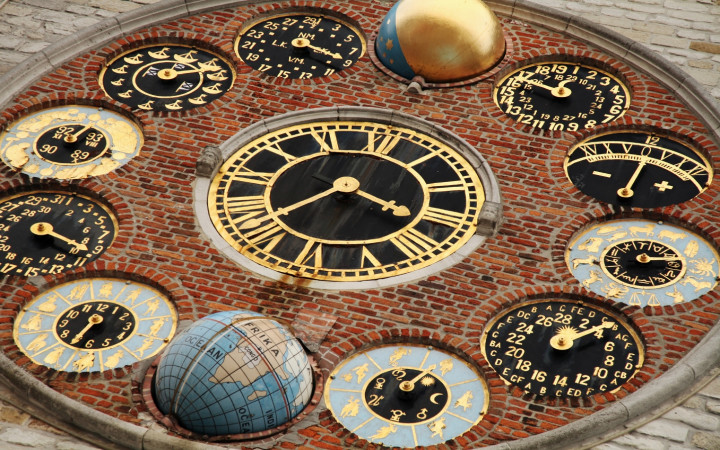Today’s Wonder of the Day was inspired by beyonce from desplaines, IL. beyonce Wonders, “who invented time?” Thanks for WONDERing with us, beyonce!
If there's one thing most students look forward to, it's learning to tell time. Once you know how a clock works, you keep your eye on it all the time! (Pun totally intended!)
Whether you're keeping track of how many minutes left until lunch…or until soccer practice starts…or until your favorite show comes on…or until bedtime, you probably find yourself keeping track of the time all day long.
If you think about it, so much of your life involves — and sometimes revolves around — time. Give it some thought. You have to get up at a certain time in the morning. Why? Because you have to be school at a certain time. You get out of school at a certain time. Television shows come on at particular times. You have to go to bed at the same time each school night.
Time is obviously a big part of our lives. But did you ever give any thought to how it came to be? Who invented time? Was it even invented at all? These are the things we're WONDERing about today!
Time wasn't really invented. After all, it's always been around since…well…the beginning of time! Some people think of it as a dimension that helps to order our lives.
Time can be thought of in many ways. One of the simplest is to think of time in terms of the past, the present, and the future. These three ever-changing bodies of experiences differ and change based upon the passage of time.
For example, you're reading this paragraph right now in the present. That last paragraph? You read that in the past. The next paragraph? You're going to read that in the future. What separates these events? Probably no more than a few seconds.
The past, present, and future can be separated by hours, days, weeks, months, and years. These are all units of measure that were created to help us keep track of the passage of time.
There are no inherent measures of time. Time just rolls on and on, never stopping. To help us better understand and navigate our lives, however, people long ago assigned standards of measurement that would help to get a grasp of the passage of time.
The natural rotation of the Earth on its axis and the revolution of the Earth around the Sun give us our two most basic measurements of time. The time it takes the Earth to rotate once on its axis (about 24 hours) is called a day. The amount of time it takes the Earth to revolve once around the Sun (about 365 days) is called a year.
These units have been further divided into even smaller units of measurement. Years are broken down into months and weeks; days are measured in hours, minutes, and seconds. And our environment impacts even these categories. The month, for example, developed from the cycles of the moon. These various units help us communicate about and keep track of time — past, present, and future.
Take some…time…today to think deeply about time. What do you think it's like? Is it just a way for us to better understand our lives? Or does it really exist in some way, such that it flows and could be traveled either backwards or forwards if the means existed to do so. What do you think? What does time mean to you?




